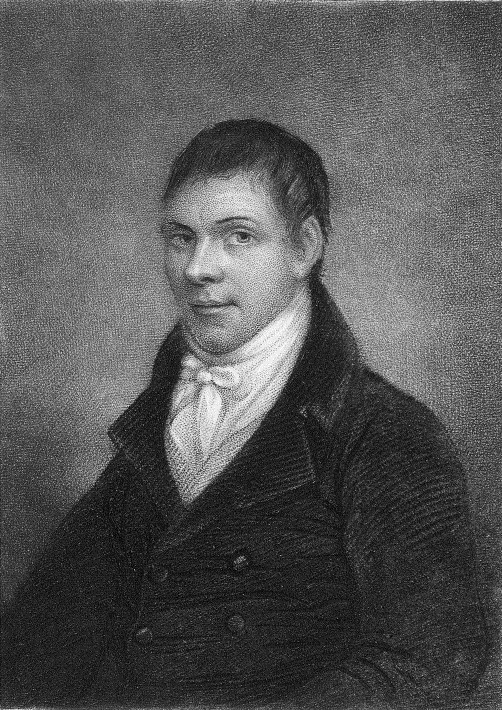Michael Dwyer of Imaal
Published in 18th–19th - Century History, Features, Issue 3 (Autumn 2003), The United Irishmen, Volume 11
Michael Dwyer by James Petrie. (National Gallery of Ireland)
Michael Dwyer of Imaal, Wicklow, joined the United Irishmen in the spring of 1797 and fought as captain of a Talbotstown rebel corps during the 1798 Rebellion. Having seen action in Wexford and Wicklow, including severe fighting at Ballyellis and Hacketstown, Dwyer returned to the familiar mountains and valleys of his native county to prosecute a guerilla war under ‘General’ Joseph Holt. When Holt accepted terms in November 1798, Dwyer fought on in close cooperation with Glenmalure factions led by John Mernagh and Hugh ‘Vesty’ Byrne, a first cousin.
By 1803 Dwyer was a famous figure of the republican resistance and a frequent visitor to the rebel haunts of the capital. Although initially wary of engagement with the conspiracy headed by Robert Emmet, Dwyer eventually accepted the entreaties of ‘Big’ Arthur Devlin and James Hope to meet the young Dubliner in Rathfarnham. Two lengthy conferences ensued in April 1803, by which time Dwyer undertook to commence diversionary actions in Wicklow prior to directly reinforcing a Dublin-centred revolt. The rushed nature of the decision to rise, however, ruined any chance of participation on 23 July 1803. Devlin, the main conduit of information, was heavily committed in north county Dublin, and Hope, another long-standing ally, was agitating in Ulster. In place of these effective operators were ‘Red Mick’ Dwyer (a second cousin) and ‘Little’ Arthur Devlin (brother of Anne), who both neglected their instructions to liaise with the Dwyer faction at Rostyduff, Imaal. The first news Dwyer heard of the rising was its failure, although Emmet’s erroneous assumption that the Wicklowmen were poised to strike drew the leadership to Rathfarnham on the night of 23 July. Dwyer succeeded in contacting Emmet in the Dublin mountains in the days following and evidently assured Thomas Cloney of his intention to rise upon the landing of the French. Emmet’s refusal to take refuge in Wicklow and his capture on 25 August added to the pressure placed on the Dwyer network by the re-imposition of martial law.
The internment of virtually all the extended Dwyer and Devlin families, coupled with the arrest of the dynamic Martin Burke, disposed ‘the Wicklow chief’ to accept terms of surrender brokered by William Hoare Hume MP on 14 December 1803. After a period of detention in Kilmainham Gaol, Dwyer, Burke, Mernagh, Byrne and ‘Big’ Arthur Devlin were embarked on the Tellicherry transport, which reached Port Jackson, New South Wales, on 14 February 1806. They arrived as free men and promptly selected 1803 veterans Walter Clare and Michael Maguire as part of their convict servant allocation. Dwyer died in Sydney on 23 August 1825.
















